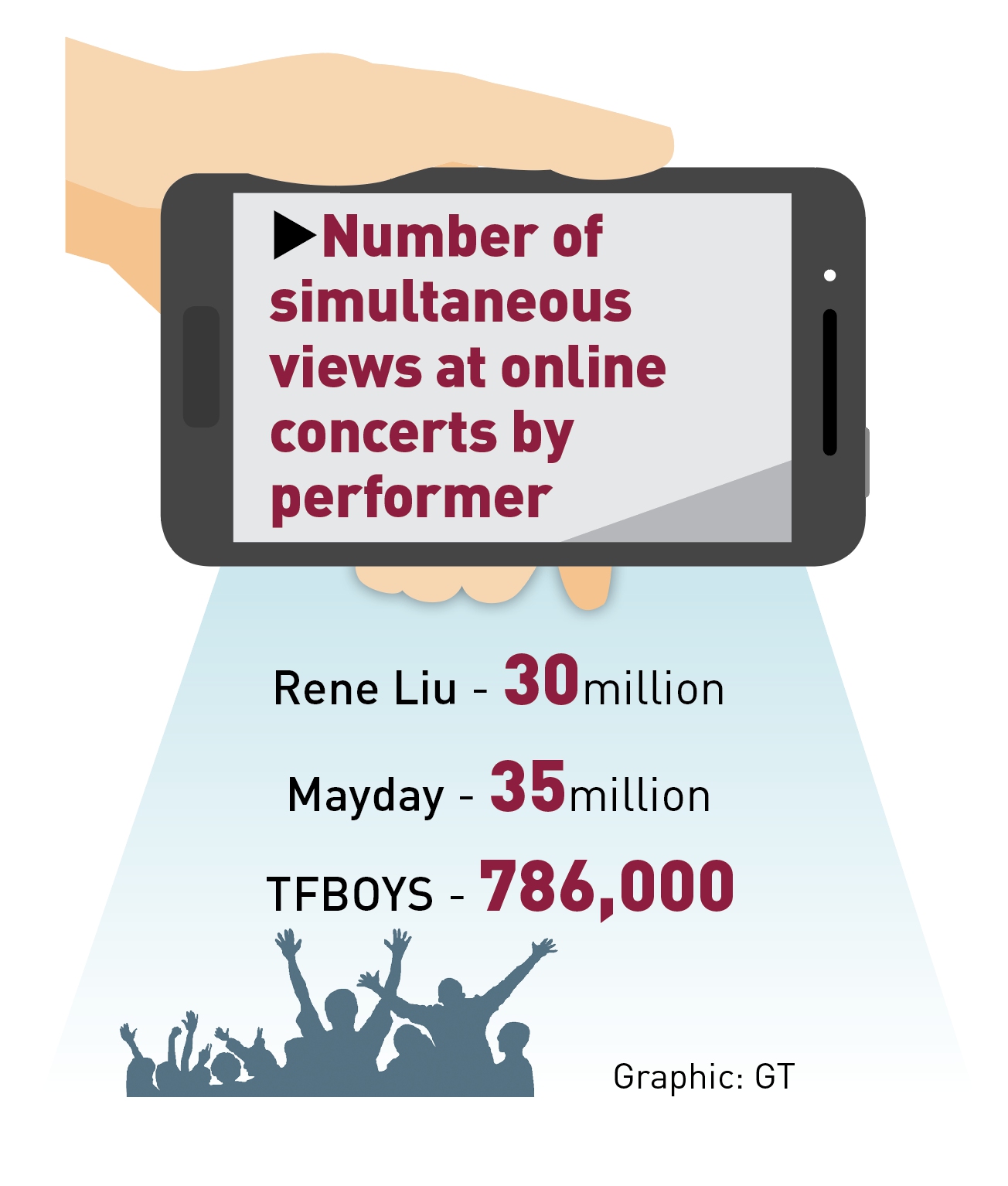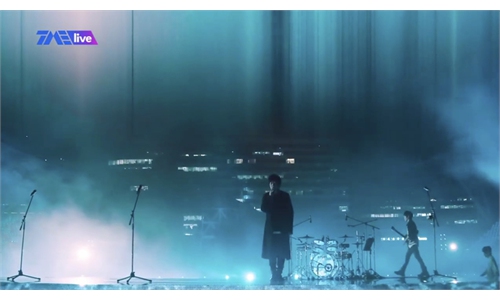SOURCE / INDUSTRIES
China leads boom in online concerts
Virtual programs a flourishing alternative to live shows

TFBOYS 7th anniversary concert is held online on August 22. Photo: Courtesty of NetEase
The COVID-19 pandemic, which is battering the world and disrupting global travel, gave Jamie Gao the unique opportunity to enjoy an online concert from her idol - popular Chinese boy band TFBOYS.
As a Chinese college student studying in Japan who has adored the band for seven years, Gao said joining the online concert amid the pandemic made her feel a sense of relief as the annual anniversary concert is a lifeline for the fans every year.
As a comparison, Gao spent around 1.4 percent of the money which she had spent last year in order to attend the band's online concert, which allowed for social distancing at a time when the virus still wreaks havoc on the world. In 2019, buying air tickets and concert ticket cost her a total of 13,000 yuan ($1,941.8).
There are a great number of fans like Gao who attended the concert online this year. On August 22, peak concurrent users joining the TFBOYS anniversary concert reached 786,000, according to the concert technical provider NetEase YunXin.
In the aftermath of the COVID-19 onslaught, live shows were an unfortunte casualty. According to statistics by China Association of Performing Arts, up to 20,000 shows across China were cancelled in the first quarter when COVID-19 hit, resulting in box office losses surpassing 2 billion yuan.
Out of the turmoil came an opportunity for virtual concerts. An online show from Mayday, a band from the island of Taiwan, drew more than 35 million viewers on the last day of May. Another virtual concert on April 17 by ballad queen Rene Liu, also from the island of Taiwan, attracted more than 150 million views worldwide accumulatively. All of these statistics cement the trend of online performances, which may retain their popularity when the pandemic is finally over.
Virtual concert boom
Looking at the overall performance of the Chinese entertainment industry during the COVID-19 outbreak, it is clear that traditional recreation is moving online with more pop stars and idols choosing to interact with their fans through internet and livestreaming platforms, Chen Li, CEO of NetEase YunXin, told the Global Times.
A provider of instant messaging, audio and video technologies, the company's business volume soared by more than four times the pre-COVID-19 level in the first half of 2020.
Preparing an online concert poses more challenges for technical support than offline concerts, as the platform must secure a stable network to enable a large quantity of viewers to enjoy the show, simultaneously.
"Smart scheduling algorithms and robust network routines are adopted to secure the success of such a popular online concert. In addition, the end-to-end data encryption technique can guarantee the copyright of the online concert," Qin Chu, CTO of NetEase YunXin, told the Global Times.
For example, the technology can keep the delay of real-time interactions between users under 250 milliseconds, according to Qin. "It is like face-to-face communication. And such a technique is world-leading."
However, Gao believes that online concerts cannot replace live shows once the pandemic is controlled.
"I feel I have become a part of the data of millions and millions of members attending online concerts, but in previous years, those sitting at the auditorium were individuals. In past summers, I could feel the air in the venues was filled with sweat and passion," Gao told the Global Times, pointing out a core difficulty for virtual concerts - the empathy that is usually created by being there in person.

Graphic: GT
Advanced tech helps
In order to improve the in-person experience for users, Qin said cutting-edge technologies such as 5G, augmented reality (AR) and virtual reality (VR) would help.
"Two outstanding features of the 5G network - low latency and strong stability - would upgrade the online concert from the current 1080p to 4K, which means a clearer picture quality," Qin said. "Putting on wearable devices facilitating VR or AR technologies, users in the 5G era may feel like they are enjoying a live show."
Qin told the Global Times that China has a large space to explore the virtual performance industry and perhaps take a lead on the global stage, thanks to the country's comprehensive infrastructure facilities and leading position in real-time audio and video communication technologies.
As of mid-September, Chinese telecom enterprises have built more than 500,000 5G base stations, with more than 100 million 5G terminals connected, said Han Xia, head of the information and telecommunications administration bureau under the Ministry of Industry and Information Technology.
"Within three to five years, 5G technology will be embedded into people's daily lives in China on a mass scale, driven by consumer demand. Along with mature 5G infrastructure construction, there will be fresh scenarios adopting the new tech innovation," Qin noted.
And, live-streaming-related audio and video technologies have already been used in remote education and telemedicine, as well as online services for banks and financial institutions.
As the world's second largest economy has now moved to a new phase after it successfully contained the coronavirus, a digitalization-boosted economic upgrade will drive the country to aim high and improve the lives of its people through new and cutting-edge technological developments.


